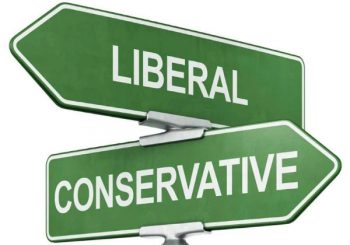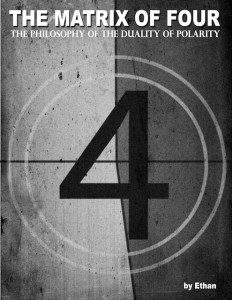Contributing writer for Wake Up World
All around the world, the institutionalization of society and of government is ruled, subtly and overtly, by mutually dependent opposition. This is the right wing and left wing dynamic of government the world over. The wings are apparently opposing but in fact the right wing and left wing work together to fly.
[pro_ad_display_adzone id=”110028″]
Across the world on national stages everywhere, you can see the right wing/left wing interplay at work in the function of government. In the United States the tone of the opposition is stark, there being really only two parties with any clear set of power. In the US the parties themselves are certainly mutually dependent oppositional forces. Voters, however, don’t tend to vote for the left wing or the right wing – instead, they vote against one or the other. It’s not so much a case of voting on principle, more of voting against principles the voter does not like.
Whatever the flavor of right and left or liberal and conservative, in whatever nation, the right and left paths are an example of the most detrimental most widely assumed thought process; the either/or construct.
Looking at the current international context, one could be forgiven for thinking that this mutually dependent opposition – this left wing/right wing dynamic – is the only option. It’s certainly portrayed and inferred to be the only option. Not so. The Matrix of Four, Philosophy of The Duality of Polarity applied to this limited and limiting either/or construct reveals the two other options: localization and individuation.
“Institutions are not individuals.” ~The Complete Patriot’s Guide
Nationalism and Globalism represent institutionalization and homogenization. Under these formats, individuals lend their power to institutions, with individuals seen as less than institutions.
By contrast, individuation and localization require the shedding of institutionalization. Individuation and localization would require liberty for all, removing monothematic demands and institutional constraints and instead empowering individuals and communities.
While nationalism and globalism involve a misunderstanding of morality and legality, individuation and localization require us to be clear on the difference between morality and legality.
We can use the Matrix of Four to get to grips with this concept. If we’re dealing with legality and morality, the four items in the matrix will be: legal/moral, illegal/moral, legal/immoral and illegal/immoral.
Well, who decides what is right and wrong? Funny you should ask. In my experience, the situation more often than not plays out like this: Conservative thinkers know there is a steadfast difference between right and wrong and yet they allow dogmatic institutions to tell them what is right and wrong. Liberal thinkers tend to believe that right and wrong can shift and that instead of black and white, it’s all gray – yet they allow the same type of dogmatic institutions to tell them what is right and wrong.
Right and wrong do not shift. Our tolerance of wrongdoing may shift (or rather be shifted by institutional influence), but that is not the same thing. Legality does change, and our tolerance is shifted, but right and wrong are simple and unchanging. It is always wrong to take advantage of others – unless you are part of nationalism or globalism and then, if it is legal, it is permitted and promoted.
Localization and individuation would and could offer the full beauty of the world instead of a world of fast food kitchens. Localization could provide everyone with their basic needs, freeing time and space for individuals to practice self-development. And of course best of all localization and individuation do not promote the scourge of institutionalization, the nationalist and globalist tones of oligarchical collectivism.
Our interconnected worldly institutions offer a stark choice of conformity or confrontation, via nationalism and globalism. Worse, they lead us to believe that this is the only option. We know better. Let us move beyond this limiting either/or construct to promote localization and individuation. Only by moving away from the fake left/right or liberal/conservative construct can we truly unite humanity.
The Matrix of Four by Ethan Indigo Smith:
The Matrix of Four: The Philosophy of the Duality of Polarity is an exploration of our consciousness, and presents a formula to develop our consciousness and surpass the limitations of traditional political and social constructs.
In this work, Ethan relates and explains correlations between the four seasons, Aum, and a myriad of esoteric and exoteric ideas on consciousness to inspire creative thinking and being.
He also explores mathematical and philosophical concepts to engage a higher thinking and being, verified using universality and human traditions beginning with the four operations of arithmetic, referencing the four archetypal characters in Plato’s The Allegory of the Cave, and much more.
Recommended articles by Ethan Indigo Smith:
- The Energy of the Divine Masculine
- Tai Chi – The “Grand Ultimate” Form of Self Development
- Tibetan Rites of Rejuvenation: a Guide to Meditation and Breath
- Understanding Ascension: The Geometry of Energy
- The Mandala: The Sacred Geometry of Meditation
- The Common Origins of Religions and Theology
- Aum Mani Padme Hum: The Integration of Duality and Polarity
- The Spiritual Golden Rule
- Meditation 108: A Guide to Meditating for the Infant Practitioner
- Walls and Wars – Overcoming the Instincts of Hive Consciousness
About the author:
Activist, author and Tai Chi teacher Ethan Indigo Smith was born on a farm in Maine and lived in Manhattan for a number of years before migrating west to Mendocino, California. Ethan’s work is both deeply connected and extremely insightful, blending philosophy, politics, activism, spirituality, meditation and a unique sense of humor.
You can connect with Ethan on Facebook, check out his author page on Amazon, or visit his new websites, Geometry Of Energy and Meditation 108, where Ethan offers lessons on individuation, meditation, the conceptualization of energy, and the metaphysical significance of 108.
Ethan’s books include:
- The Geometry of Energy: How to Meditate: Simple and profound, this book offers an empowering four-step meditation, focused through the sacred dimensions of geometry.
- The Little Green Book of Revolution an inspirational book based on ideas of peaceful revolution, historical activism and caring for the Earth like Native Americans.
- Meditation and Geometry for The Youth: A short and sweet book to introduce young people to meditation and sacred geometry, in a simple format for the youth and youthful alike.
- 108 Steps to Be In The Zone, a set of 108 meditative practices for self discovery and individual betterment, including techniques to develop balance, transmute sexual energy.
[pro_ad_display_adzone id=”110027″]









